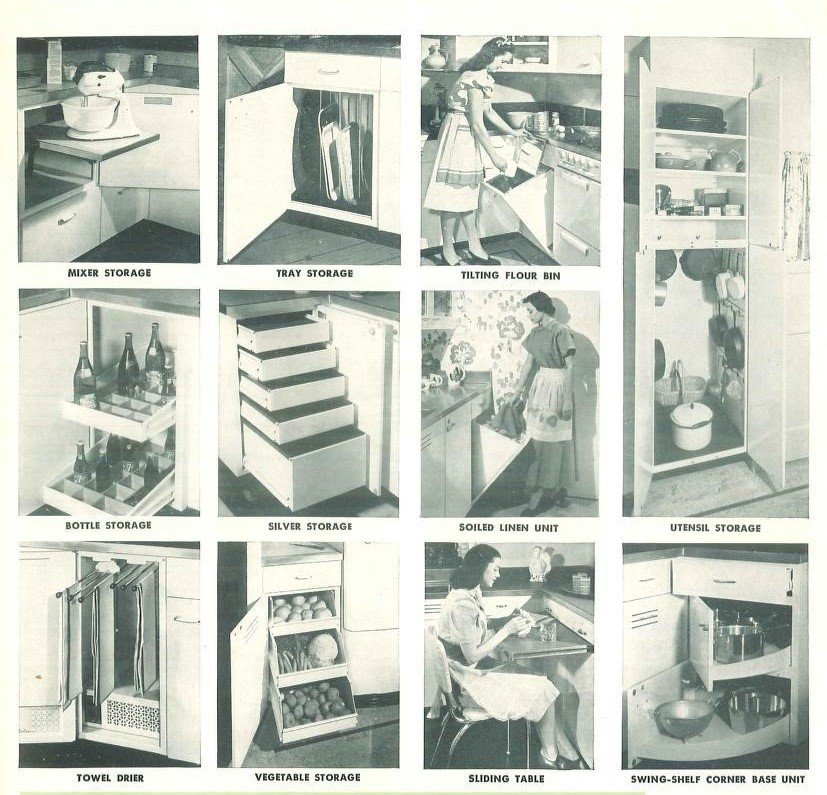Modular Kitchen Components: From Early to Modern Ones
Kitchen renovation has always been one of the largest markets in the renovating or remodeling industry and over the years it has seen significant changes in its components and designs. From its humble beginning as a utilitarian space to the marvelous contemporary kitchens, this transition of modular kitchen components from early traditional setups to modern ones reflects the continuous quest for modernity. The journey of kitchen renovations can be traced from simple cupboards of early 20th-century kitchens to the new sleek and top-tier modern cabinets. Earlier kitchens were focused on durability, ease, and functionality. Hence, cabinets were made of wood, aluminium, and steel, while plastics and prefabricated cabinets found their way into modern kitchens, enhancing functionality and aesthetics. This blog will explore the breakthrough leading to the transition of kitchen components from transitional to modern ones.

Early Days of Kitchen Components

The modular kitchen concept emerged in the early 20th century, a revolutionary period for kitchen components and design, industrial progress and technological advances during this period revolutionised the kitchen interior and space. The primary feature of the kitchen in the early 20th century was standardisation and durability and ease were prioritised over aesthetics. The major breakthrough in kitchen components, leading to the kitchen of today emerged during the 1930s with the introduction of modular kitchen cabinets and countertops. Cabinets, storage units, and countertops manufactured with materials like wood, metal, and steel were pre-designed to fit into the particular dimension of a kitchen space. Durability and ease were prioritised over aesthetics. In earlier modular kitchen designs storage options were limited to basic built-in and fixed shelves and cabinets, making it difficult to optimise kitchen space effectively and a shift is needed from traditional layouts of the kitchen to more modernised kitchen layouts.
Mid-20th Century Innovations: Dawn of Modern Modular Kitchens

The mid-20th century, or the post-World War II era, brought prominent changes to kitchen design and cabinetry driven by technical advances and cultural shifts. This era saw the rise of sleek, functional designs and kitchen components made of new materials like laminate, plastic, and metals. Modern modular kitchen cabinets allow customisation and flexibility in kitchen designs, enhancing both functionality and aesthetics. This era laid the groundwork for the modern modular kitchens we see today.

Innovations and Changes During This Era:
New Materials:
Materials like plastics, laminate, steel, and aluminium came into existence, replacing traditional materials such as wood and enamel that offered lightweight and colourful options in kitchen layouts.
New Appliances:
The Industrial Revolution also took centre stage during this era and with the advent of electricity, mass manufacturing of electrical appliances such as refrigerators, dishwashers, and ovens. These appliances transformed culinary experiences by reducing the time and effort required to do kitchen chores. During this era significant kitchen triangle concept was also introduced that enhanced efficiency and workflow.
Aesthetic Designs:
During this era, the importance of aesthetics started influencing kitchen designs. Bright and vibrant colour palettes added a lively mood to the kitchen design and smooth finishes on the cabinetry surface offered a polished look. These changes in kitchen space transformed the kitchen into a visually appealing space.
Adequate Lighting:
With the advent of electricity, electric lamps started replacing oil lamps, turning dim-lit kitchens into more well-lit and welcoming spaces. These lightings not only enhanced the interior look of the kitchen but also significantly made kitchen chores like chopping vegetables and cleaning utensils easier by increasing visibility inside the kitchen.

Conclusion
The transition from early modular kitchen components to modern ones tells a broader story of progress. The 20th century was a transformative period for kitchen design and components, blending technological advances with societal and cultural shifts. The introduction of modular kitchen basic cabinets and countertops in the early 20th century laid the foundations for their modern counterparts. With various innovations and changes during this era kitchen spaces transformed from utilitarian spaces into more efficient and aesthetically pleasing spaces.
Modular kitchens will also continue to transform in the future, adapting to emerging technologies and cultural shifts. Ivabu Modular Solutions is also evolving with these changes and offers top-tier modular solutions according to the needs of different individuals.
Schedule Your Free Consultation Today!
Experience top-quality modular solutions at Ivabu. Ready to elevate your space with our innovative designs and expert services?
Call us at: 011-43628126 or +91 99990 64718, or email us at info@ivabu.in to book your consultation.
Visit Ivabu to explore our range of services and start your journey to a transformed space.



